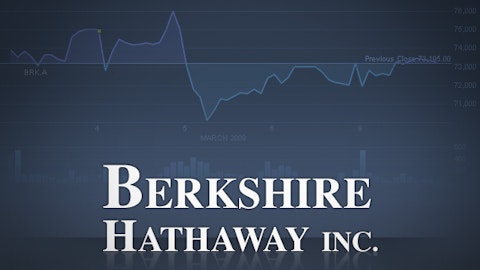Coffee
Elsewhere, the supply glut of coffee and record low prices mean that Starbucks Corporation (NASDAQ:SBUX)‘s earnings are growing due to higher margins.

The price of Arabica coffee bubbled during 2011 and farmers sought to take advantage by increasing production. Now due to the supply glut, prices have hit record lows.
However, Starbucks Corporation (NASDAQ:SBUX) has reaped the benefits as the company has been able to buy its beans in for less while maintaining the price it charges customers. Indeed, the price of coffee actually has an inverse relationship with Starbucks Corporation (NASDAQ:SBUX)’s share price.

Moreover, Starbucks Corporation (NASDAQ:SBUX) is a price maker and is able to increase prices on products in its stores in order to offset price increases in the underlying commodity. So, while the company benefits significantly from low input costs due to low commodity prices, it is also able to offset any increase in the price of coffee maintaining its gross margin.
Sugar
Global Agri-company Bunge Ltd (NYSE:BG) is seeing strong growth in its ethanol business due to the low price of sugar. The record crop in Brazil, coupled with years of over planting, has sent the price of Ethanol’s main ingredient, sugar, to rock bottom levels.
In addition, the price of Ethanol has been on the rise as consumers seek an alternative to gasoline. In particular, within Brazil, where Bunge Ltd (NYSE:BG) produces most of its ethanol, government has lowered ethanol taxes to spur usage and raised the price on gasoline to reduce its reliance on imports.
Indeed, Bunge Ltd (NYSE:BG)’s sugar and biotechnology division accounted for 7.6% of sales last year and reported EBIT of $23 million, compared with a loss of $33 million the year before.
Record low sugar prices and weakness across the rest of the soft-commodity market boosted Bunge Ltd (NYSE:BG)’s cash generation in the fourth quarter of 2012 to approximately $2.4 billion, up from $1.3 billion in the same period last year.
Conclusion
With soft commodity prices spiraling downwards, farmers and producers are seeing their profit margins squeezed and supply is far outstripping demand. However, buyers of soft commodities are reaping the benefits as lower input costs are driving profit margins wider.
The article The Soft Commodity Market Is Weak, But Are These Companies Set to Benefit? originally appeared on Fool.com.
Fool contributor Rupert Hargreaves has no position in any stocks mentioned. The Motley Fool recommends Starbucks. The Motley Fool owns shares of Starbucks. Rupert is a member of The Motley Fool Blog Network — entries represent the personal opinion of the blogger and are not formally edited.
Copyright © 1995 – 2013 The Motley Fool, LLC. All rights reserved. The Motley Fool has a disclosure policy.


